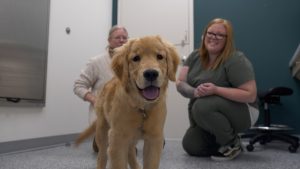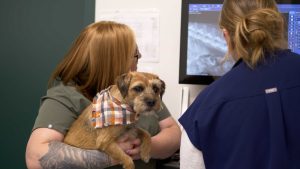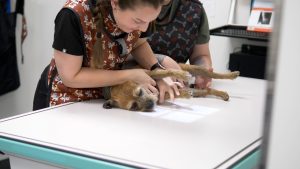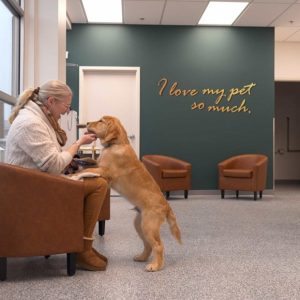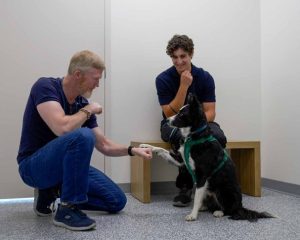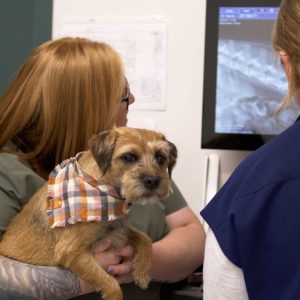Spay and neuter surgeries are common, but for many pet owners, the lead-up can still raise many questions. How should I prepare? Will my pet be okay? What happens after? These concerns are valid, especially regarding something as important as your pet’s health and comfort.
Understanding what to expect at each stage of the process: before, during, and after surgery, can ease worry and help ensure a smooth experience. From pre-surgery prep to post-op recovery, here are five key things to know before the big day.
1. Fasting is Crucial. No Food After 10 PM
One of the most important steps before surgery is making sure your pet has an empty stomach. Veterinarians typically ask pet owners to remove food by 10 p.m. the night before the procedure.
When a pet is under anesthesia, having food in the stomach increases the risk of vomiting, which can lead to dangerous complications like aspiration. Water is usually allowed overnight, but may be limited in the early morning depending on the clinic’s protocol. If there are any doubts, always call to confirm.
Following fasting instructions is an easy but essential way to ensure the procedure goes safely from the start.
2. Stay Calm at Drop-Off. Pets Mirror Your Energy
Surgery days can be emotional, especially for owners, but pets take their cues from the humans around them. Staying calm and composed during drop-off helps reduce anxiety for everyone involved.
Veterinary clinics typically request early drop-offs so pets can be prepped for surgery and monitored throughout the day. Keeping your goodbye short, gentle, and reassuring goes a long way. A comfortable leash or carrier is key, and avoid any significant changes to routine the morning of.
Even if a pet seems nervous, most settle quickly once inside the clinic. The veterinary team is trained to help them feel safe and relaxed while preparing for surgery.
3. Rest and Recovery Look Different for Every Pet
Post-surgery behavior varies widely. Some pets return home sleepy and quiet, others are alert and restless. These differences are completely normal and usually depend on age, temperament, and how each animal processes anesthesia.
Expect your pet to need rest and supervision for the first 24 to 48 hours. The vet may prescribe pain medication and send home a recovery collar to prevent licking or chewing the incision site. Some pets may also have a reduced appetite or be slightly disoriented, again, nothing unusual.
What matters most is monitoring your pet closely, keeping their environment calm, and following every aftercare instruction provided. Healing takes time, and the first few days are critical for a smooth recovery.
4. Healing Means Hitting Pause on the Zoomies
One of the most common mistakes owners make is letting pets return to regular activity too soon. Even if the incision looks fine and the pet seems energetic, limiting movement for 10 to 14 days is essential.
That means no running, jumping, climbing stairs, or wrestling with other pets. The internal and external sutures need time to heal, and too much activity can reopen the incision or cause internal complications. Short leash walks for bathroom breaks are fine, but that’s about it.
Block off stairs, remove furniture access if needed, and use a crate or confined area if your pet is especially active. A little prevention now avoids setbacks later.
5. It’s a Healthier Future, Not Just a Procedure
Many people think spaying or neutering is only about avoiding unwanted litters. But the truth is, it plays a significant role in long-term health.
For females, spaying reduces the risk of uterine infections and drastically lowers the chance of mammary tumors, especially if done before the first heat cycle. For males, neutering eliminates the risk of testicular cancer and reduces the likelihood of prostate problems.
It also decreases behaviors like marking, spraying, howling, and escaping to find a mate. Even indoor pets benefit. The earlier it’s done, usually around six months of age, the more effective these benefits tend to be.
Thrive Vet Care: Setting the Standard for Spay & Neuter in Airdrie
There are a lot of myths floating around out there, so let’s bust them, especially with how Thrive Vet Care handles things:
- “It’s too painful for my pet.” Thrive uses advanced anesthesia and modern pain control techniques to ensure your pet stays comfortable throughout the procedure and recovery. Our team is trained to minimize stress and support healing every step of the way.
- “It’s too expensive.” Thrive keeps spay and neuter services affordable, with transparent pricing and no surprise fees. We believe every pet deserves access to top-quality care.
- “My pet will gain weight.” Thrive helps you maintain a healthy lifestyle post-surgery, with expert guidance on nutrition and exercise to keep your pet fit and active.
- “It’ll change their personality.” Thrive’s approach focuses on supporting your pet’s well-being without altering who they are. Pets remain their lovable selves. What often changes are unwanted behaviors: less aggression, less marking, and more calm at home.
- “My pet’s always indoors, so it’s not needed.” Even indoor pets benefit from reduced cancer risks, hormone-related illnesses, and long-term health issues. Spaying and neutering lowers the risk of serious health issues like uterine infections and testicular cancer.
Why Thrive Vet Care is the Trusted Choice in Airdrie
Thrive Vet Care delivers if you’re looking for a veterinary team that prioritizes your pet’s comfort and health at every stage. As a full-service veterinary hospital, they offer expert medical services for cats and dogs, focusing on advanced care, clear communication, and compassionate support.
At Thrive, experienced veterinarians use the latest tools and techniques to ensure precision and care in every procedure, from routine checkups to spay and neuter surgeries. Pets are treated like family, and owners are confidently guided through the process.
Ready to book? Contact Thrive Vet Care in Airdrie today and give your pet the expert care they deserve from a trusted veterinary clinic, animal hospital, and animal clinic all in one.


